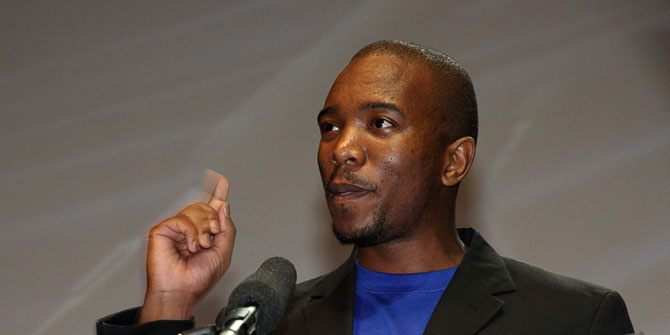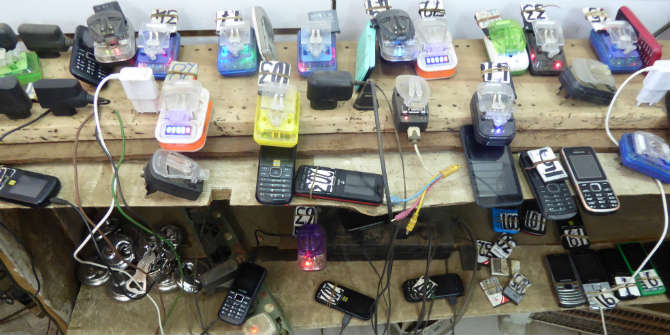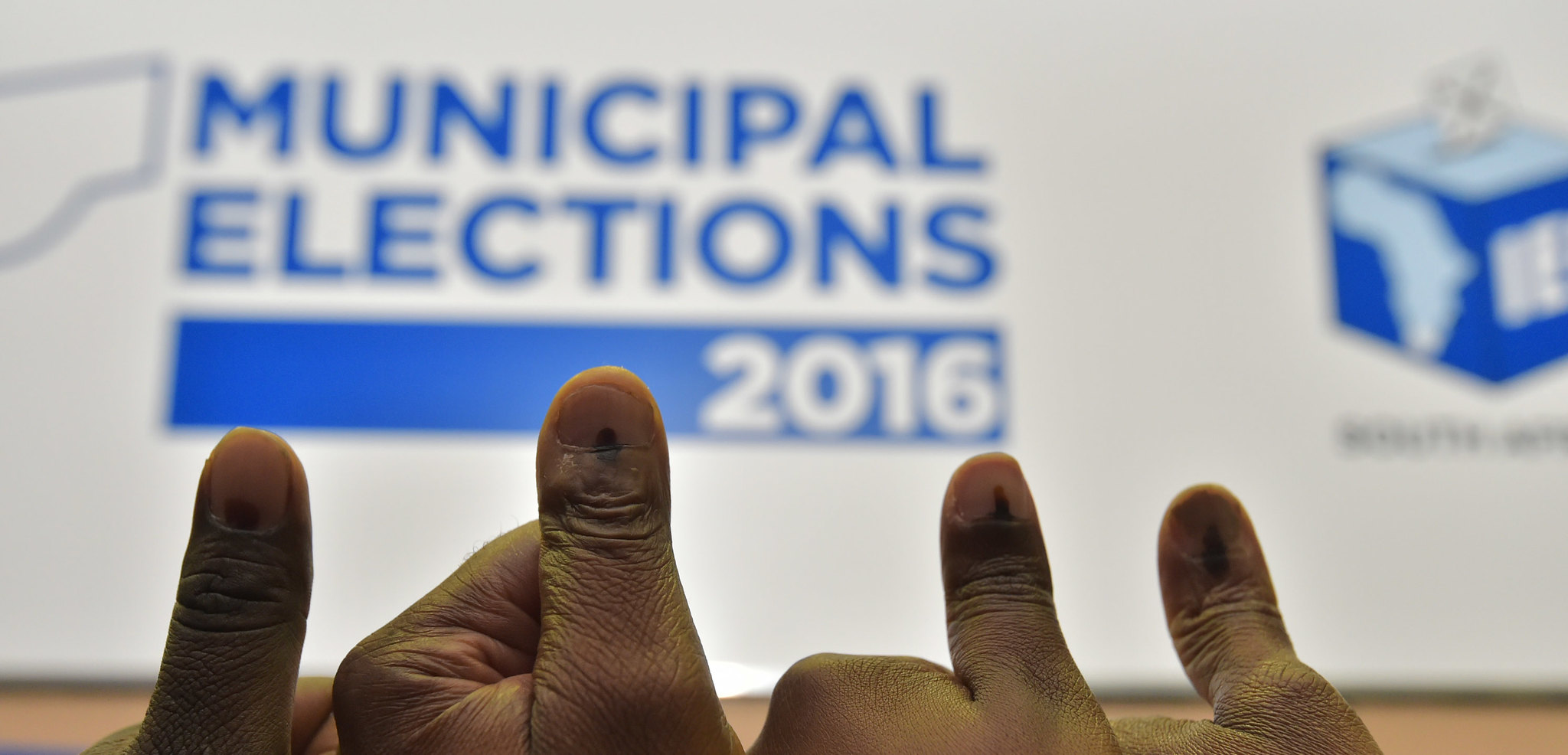LSE’s Mitchell Aghatise questions whether Nigeria’s change of government will mean a new beginning for the country. This post is part of African Elections series.
It is important to objectively analyse what the recent elections actually mean for Nigeria. It is easy to muddle the real issues in campaign soundbites. Many believe that change has finally come. But has it?
Despite my views on the incumbent and on the President-elect, I have always maintained that Nigeria’s democracy will only become entrenched when the Nigerian people, in a relatively free and fair election are able to vote out a sitting head of state. I stand by this. At the time INEC announced the election results, I hoped change would foster the level of competition that will churn out candidates worthy of the Nigerian vote. Although this remains my hope, I am not confident.

For many in Nigeria, the opposition APC, due to failures primarily in security, had seemed like a government in waiting. The worrying trend was that large swathes of the ruling political class defected to APC right up to a day before the elections. This exodus left the ruling PDP as a skeleton of itself.. One must then question whether we have achieved true change, or a name rebrand. The same folks who bore the brunt of the Nigerian ire have swapped their PDP umbrella for the APC broom.
That said I am glad that General Buhari has made it clear that PDP defectors will not have an automatic place in the APC government. This is good news, others will think twice about jumping ship for a soft landing. . Maybe that will help the PDP to consolidate enough to become a formidable opposition in time for the 2019 elections, a necessity for a vibrant democracy.
A worrying observation during the election campaign was that, as a country, Nigeria has still not cleared the hurdle of tribalism. The dismal performance of Goodluck Jonathan in the North could be ascribed to the Boko Haram menace, but coupled with similar performances in the past, it is beyond that. To many, his reversal of fortunes in the South West was because the North and South-West regions teamed up to kick out a South-South/South-East leadership. I must say that when I heard this analysis, I considered it simplistic and naïve. However, recent events leading up to the gubernatorial elections have shown that Nigeria remains inclined to tribal politics and fear. The mere fact that the view is genuinely held by some and relatively logically defensible is a problem that highlights a deeper divide that is yet to be solved.
Incidentally, this view is not purely academic. In anticipation of the gubernatorial polls in Lagos, the Oba (King) of Lagos (south-western state), threatened Ibos (South-Easterners) with death in the lagoon were they to vote for the PDP candidate in Lagos. In light of the recent anniversary of the Rwandan genocide and of the wounds which are yet to heal of the Biafran war, these words were irresponsible at best and can be interpreted as genocidal. For a more detailed analysis of the backlash, see Chimamanda Adichie’s recent article.
For many who congratulate Nigerians on the elections, I will urge you to wait a while. General Buhari will win my admiration if he demonstrates during his tenure that he is not a Northern or Hausa President, but a President of the Federal Republic of Nigeria. As a Yoruba man in Lagos, an Ibo Lady in Nnewi or a Bini youth, like me, in Edo, we must all be made to feel that we are a valued part of this commonwealth – Nigeria. I watched with starry-eyed anticipation for the President-elect to swoop into Lagos and chastise the Oba for his divisive words. I envisioned ‘the people’s general’ addressing the masses, telling them that this is a new dawn in Nigeria, a Nigeria without room for statements like those of the Oba. My expectation was dashed. The words of Mr. President-elect “forgive and move on”. At this point, I realised that what we have institutionalised is not change, but business as usual with a different face.
It is still too early to rate the presidency of General Buhari; he is yet to even be sworn in. That said, the baby steps achieved at the just concluded polls will be lost if we do not keep a critical eye on the incoming government. Mr Jonathan ended his tenure on a high note; many hail his swift concession upon learning the results as proof of his commitment to a democratic Nigeria.
That said, the resounding message to Mr Jonathan was: “Mr President, we employed you by our ballot, incompetence is met by sack. No ifs, no buts.” Goodluck Jonathan can now retire to Otuoke.
Nigeria has definitely moved on from the tragedy of June 12, 1993 when Ibrahim Babaginda dispossessed us of our right to determine our leaders and imprisoned MKO Abiola. I congratulate us. But let no person tell us the job is done, for it has just begun.
Goodluck, General Buhari. Remember, “…incompetence is met by sack. No ifs, no buts.”
Mitchell Aghatise is the Co-Director of the LSE Africa Summit and an LLM student at LSE. Follow him on Twitter @Mr_Mitch_A.
The theme of “Innovative Governance and Political Change: What scope for a more democratic and inclusive Africa?” will be discussed at the LSE Africa Summit on 18April. Prominent APC governor, Rauf Aregbesola, will be a panellist.
The views expressed in this post are those of the author and in no way reflect those of the Africa at LSE blog or the London School of Economics and Political Science.





